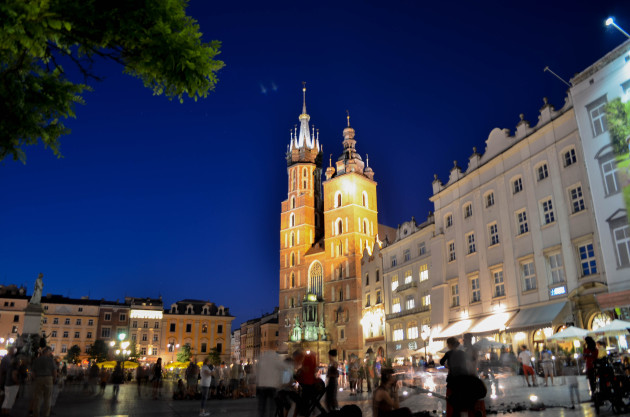
by Alix Wall
Rediscovering Jewish Roots in Poland through Coca-Cola

Gunnar Inge Gjøvik Sortland
The six degrees of separation is usually only two or three when it comes to Jews. Poland ended up being a perfect example when I attended a “Seminar on Wheels” for Jewish professionals with the Taube Center for the Renewal of Jewish Life in Poland.
We keep hearing that many Poles are discovering Jewish roots, but when I visited Poland recently I met precious few of these reported multitudes. “In August, everyone is on vacation,” we were told.
One evening, eight of us chose to go to an upscale Krakow restaurant. We only had one strictly kosher person in the group who had brought his own foil-wrapped food. Since most meals were organized by the Taube Center, the restaurants we had previously eaten at had been forewarned that they would be asked to heat up some outside food. But this particular evening was the first time we were trying this particular ask on our own. (I know that at home, most restaurants have a strict “no food from outside” policy, and I noticed my own discomfort at having someone in my group make such a request, but that’s a topic for another day).
At first, the waiter gave him a brusque “We don’t do that,” but his response soon softened into an “I’ll ask.” Then, the answer became a yes. When our waiter, Jakub, came back to pour our wine, he skipped over Daniel, telling him, “You can’t have any.” Jakub then asked him, “Would you like a Coke? Coke is kosher.”
We looked at him, stunned. How did he know? Of course we asked. “My sister keeps kosher,” he said and walked away.
By the end of the night, we knew his story. As a teenager, Jakub found out that his mother was Jewish. His sister is now shomer Shabbat and keeps kosher, but Jakub wasn’t much interested in reconnecting with his roots. His sister is the godmother of his child, but missed his child’s First Communion since she would have had to violate Shabbat to attend; she came once Shabbat was over.
The next day we were at the Krakow JCC and a woman named Olga came by. She is a well-known community member, and we interrupted our regularly scheduled programming to hear her story. Clearly, she had done this before—the spontaneous request to talk about finding out she was Jewish didn’t seem at all odd to her. As she spoke, details began resonating for us. Even though her mother had always known she was Jewish, no one in her family was interested in learning more about it, or joining the community, she said; her brother not at all. She was the only one.
I don’t remember what she said that made us put two and two together, but something clicked into focus.
“Is your brother a waiter?” someone asked.
“Yes, why?”
We looked at each other incredulously. “And you didn’t attend his child’s First Communion because it was on Shabbat,” one of us said.
“Yes.”
“He was our waiter last night.”
The fact that our unplanned conversation with Jakub—and later with Olga—happened spontaneously perfectly illustrated what the Taube Center had been telling us about Poland’s Jewish community, and in this case, they couldn’t have planned it any better.
So there are people of Jewish extraction everywhere in Poland; some are identifying with their background, some are not. And it just so happened that we found out about it ourselves, in a restaurant not even on our itinerary.
Sometimes, small miracles can be unearthed beneath a simple act, like offering a rabbi a Coke.